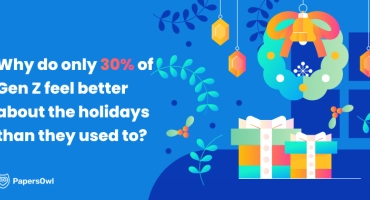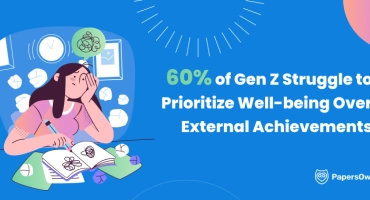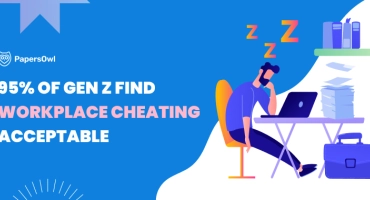From Budgets to Leases: Why 8 in 10 Young Adults Feel Unprepared to Live
Table of contents
When does a PERSON become an ADULT? Does it hit you when you catch yourself Googling how to unclog a sink at midnight? Maybe it happens when you earn a diploma? No and no.
Adulting is all about highly valuable skills and knowledge to manage money, navigate housing, and confidently handle everyday responsibilities.
However, a new survey of 2,000 Americans aged 18–30 reveals that many young adults feel unprepared for these essential basics. Thus, most scored below 60% on a practical life skills quiz, from budgets and insurance to leases and legal know-how. All in all, stress and uncertainty leave 8 in 10 Gen Zers anxious about their ability to handle real-world challenges.
Let’s discover what Gen Z gets right, where they fall short, and how their confidence — or lack thereof — reveals the real state of everyday life skills today!
Key Insights From the Life Skills Survey
Our survey results reveal more than just a few gaps — they highlight patterns that shape how young adults approach everyday challenges. While some strengths exist, the weaknesses clearly stand out:
- Financial literacy is the weakest area, with just 31% correct responses.
- No category broke the 60% mark, excluding nutrition, despite all multiple-choice questions.
- Half of the respondents felt stressed by practical life skill questions.
- Almost 80% lack confidence in their everyday skills.
- Google remains the top resource for life skills how-tos, far outpacing TikTok and ChatGPT.
The picture paints itself — we are dealing with a curious and cautious generation. Gen Z relies on digital tools for answers but still lacks the foundational knowledge to feel secure in daily decision-making.
What Gen Z Knows (and Doesn’t) About Everyday Life
When we asked 2,000 Americans aged 18–30 to take a practical life skills quiz, the results painted a sobering picture. Only one category — food and nutrition — crossed the 60% threshold, with 82% correctly identifying which options contain only dairy products.

The rest? Well, alarmingly lower.
Often seen as the bedrock of independence, financial literacy lagged at 31% correct answers. House maintenance and upkeep proved another weak spot since only 33% knew which type of insurance is typically required by law for all U.S. drivers. One might expect more confidence with insurance and travel logistics, but scores still hovered in the mid-50s.
We want to highlight that survey questions aren’t obscure trivia — they’re everyday basics needed to survive. We offered multiple-choice answers, no trick wording, and no open-ended responses. However, the low scores suggest more than gaps in memory. They hint at a generation that tries to navigate adulthood without a full toolkit.
Our results and analysis imply that the deficits cross almost every area of daily self-reliance. They range from understanding leases and mortgages to rent and landlord relationships, from basic legal understanding to maintenance. Indeed, the data suggests that many young adults guess rather than know when life’s fine print shows up — whether in a contract, an electrical outlet, or an insurance policy.
Confidence, Stress, and the Search for Support
Take nutrition out of the equation; no category cleared a 60% success rate. That’s truly unsettling since every question had clearly defined answer choices. There are no riddles or trick phrasing — just practical, real-world facts that many will inevitably face. At the same time, 3 out of 4 respondents didn’t feel the need to use the internet—though, looking at their answers, maybe they should have…

Besides, half of the respondents said they felt stressed during the quiz. For example, 6% said stress was severe enough to impact the process. While 52% said they stayed calm, this was often despite uncertainty. And only 20% felt certain about their answers being correct.

We concluded that the majority of respondents were either making educated guesses or openly unsure about many practical life skills. This uncertainty mirrors another telling result: nearly every second respondent mentioned that they’d turn to friends or family before relying on online resources. While the internet is, of course, still a go-to (with 88% using Google for life skills how-tos), it seems that Gen Z is not quite ready to fully embrace the vast digital landscape for their everyday problems.

Even in an age where TikTok, Reddit, and even ChatGPT offer quick solutions, these platforms trail far behind. In fact, it seems that when it comes to something as simple as fixing a lamp or more complexe like understanding the difference between a lease and a mortgage, Gen Z is more likely to reach out to their parents for guidance than search online. This points to a deeper trend: despite having endless information at their fingertips, many young people still rely on trusted, offline sources for the answers to some of life’s most basic challenges. It’s a mix of comfort, familiarity, and perhaps a bit of reluctance to trust online advice for something as hands-on or serious as managing finances or household repairs.
Now get us right: we have no intention of shaming or judging Gen Z. We rather aim to showcase a real problem supported by real numbers.

High Anxiety, Low Confidence: Gen Z Struggles With Life Skills
So, what’s the sorest spot? Financial literacy again. We found that only 20% rated themselves most confident in this domain, from credit scores to budget management. Areas of low assurance closely follow housing, insurance, and legal basics.

The impact goes beyond quiz scores! Over 80% of Gen Z said they sometimes or often feel anxious because they lack certain practical skills. In a world where self-sufficiency is increasingly important, those numbers signal a growing need for better everyday education — not just academic credentials.

How to Help Gen Z Build Stronger Life Skills and Reduce Stress?
Our findings underscore a critical gap: while Gen Z excels in digital fluency, many struggle with the everyday competencies that make independent living smoother and less stressful. The low scores, coupled with high anxiety levels, reveal a need for stronger foundations in areas like money management, housing, and legal literacy.

Addressing these skill gaps through formal education, community programs, or self-guided learning could reduce stress, boost confidence, and prepare young adults for the realities of life beyond the classroom. Because when it comes to “Adulting 101,” guessing your way through isn’t a sustainable plan!
Methodology: Researchers from PapersOwl surveyed 2,000 members of Generation Z to compile this study. Randomly selected participants were asked to discuss their experiences, with no emphasis on a specific gender, ethnicity, or social background.




